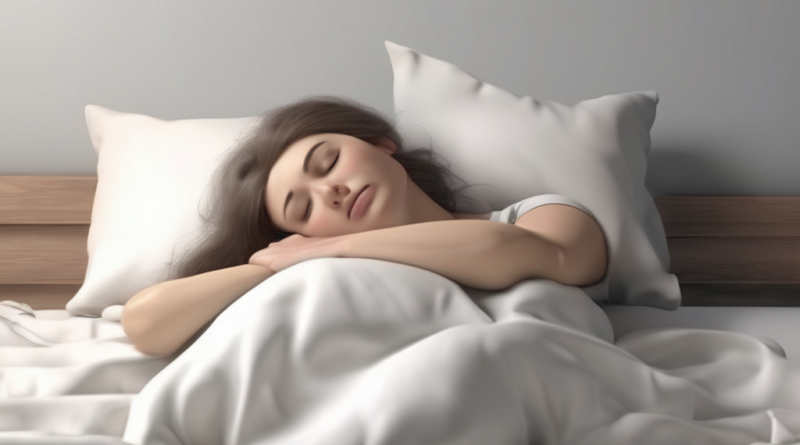How to Get Quality Sleep Without Medications
How to Get Quality Sleep Without Medications
Getting a good night’s sleep is crucial for our physical and mental well-being. However, many people struggle with sleep issues and often turn to medications as a quick fix. While sleep aids can be effective, they are not a long-term solution and can come with side effects. This article will explore natural, medication-free ways to improve your sleep quality. By the end, you’ll have actionable tips to help you get the restful sleep you deserve.
Why Quality Sleep is Essential
Before diving into the tips, it’s important to understand why quality sleep is so vital. According to the National Sleep Foundation, adults need 7-9 hours of sleep per night. Quality sleep helps in:
- Boosting immune function
- Enhancing cognitive abilities
- Regulating mood
- Improving overall physical health
Without sufficient rest, you may experience fatigue, irritability, and a decreased ability to concentrate, among other issues.
Create a Sleep-Inducing Environment
One of the most effective ways to improve your sleep quality is by optimizing your sleep environment. Here are some tips to help you create a more sleep-friendly space:
Optimize Your Bedroom
Temperature: Keep your bedroom cool, ideally between 60-67°F (15-19°C).
Lighting: Use blackout curtains to block out external light and minimize exposure to artificial light before bedtime.
Noise: Use earplugs or a white noise machine to drown out disruptive sounds.
Invest in Quality Bedding
Comfortable mattresses and pillows can make a significant difference in your sleep quality. Look for materials that offer good support and comfort. According to a study by the National Sleep Foundation, 93% of people say a comfortable mattress is important for a good night’s sleep.
Establish a Consistent Sleep Routine
Consistency is key when it comes to sleep. By sticking to a regular sleep schedule, you can regulate your body’s internal clock, making it easier to fall asleep and wake up. Here are some tips to establish a consistent sleep routine:
Set a Fixed Bedtime and Wake-Up Time
Try to go to bed and wake up at the same time every day, even on weekends. This helps regulate your circadian rhythm, which controls your sleep-wake cycle.
Limit Naps
While napping can be beneficial, excessive or late-afternoon naps can interfere with your nighttime sleep. If you need to nap, try to keep it under 30 minutes and avoid napping late in the day.
Adopt Healthy Lifestyle Habits
Your daily habits can significantly impact your sleep quality. By making a few lifestyle changes, you can promote better sleep:
Exercise Regularly
Regular physical activity can help you fall asleep faster and enjoy deeper sleep. Aim for at least 30 minutes of moderate exercise most days of the week. However, avoid vigorous exercise close to bedtime, as it can be stimulating.
Watch Your Diet
What you eat and drink can affect your sleep. Here are some dietary tips to consider:
- Avoid Caffeine and Nicotine: These stimulants can interfere with your ability to fall asleep. Try to avoid them in the hours leading up to bedtime.
- Limit Alcohol: While alcohol may help you relax, it can disrupt your sleep cycle and reduce the quality of your sleep.
- Eat Light Evening Meals: Heavy or spicy meals can cause discomfort and indigestion, making it harder to fall asleep.
Practice Relaxation Techniques
Relaxation techniques can help calm your mind and prepare your body for sleep. Here are some methods to try:
Mindfulness Meditation
Mindfulness meditation involves focusing on your breath and bringing your attention to the present moment. This practice can reduce stress and promote a sense of calm, making it easier to fall asleep. A study published in JAMA Internal Medicine found that mindfulness meditation improved sleep quality in older adults with sleep disturbances.
Progressive Muscle Relaxation
This technique involves tensing and then relaxing different muscle groups in your body. By focusing on the sensations of tension and relaxation, you can reduce physical stress and promote relaxation.
Deep Breathing Exercises
Deep breathing exercises can help slow your heart rate and promote relaxation. Try the 4-7-8 breathing technique: inhale for 4 seconds, hold your breath for 7 seconds, and exhale for 8 seconds.
Limit Exposure to Screens
The blue light emitted by phones, tablets, and computers can interfere with your body’s production of melatonin, a hormone that regulates sleep. To improve your sleep quality:
Implement a Screen Curfew
Aim to turn off electronic devices at least an hour before bedtime. Instead, engage in relaxing activities such as reading a book, taking a bath, or practicing a hobby.
Use Blue Light Filters
If you must use electronic devices before bed, consider using blue light filters or apps that reduce blue light exposure. Many devices also have built-in settings for reducing blue light.
Seek Professional Help if Needed
If you’ve tried these tips and still struggle with sleep issues, it may be time to seek professional help. Sleep disorders such as insomnia, sleep apnea, and restless legs syndrome can significantly impact your sleep quality. A healthcare provider can help diagnose and treat these conditions, offering solutions tailored to your needs.
Conclusion
Quality sleep is essential for our overall health and well-being. By creating a sleep-inducing environment, establishing a consistent sleep routine, adopting healthy lifestyle habits, practicing relaxation techniques, and limiting screen exposure, you can improve your sleep quality without relying on medications. Remember, good sleep hygiene is a long-term commitment, but the benefits are well worth the effort. Sweet dreams!

